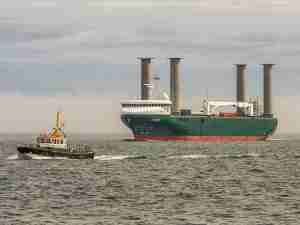The return of oil exports from Kurdistan to Turkey through a pipeline that’s been shut for more than a year will take longer as negotiations continue with the regional government and oil producers, a Iraqi government spokesman said.
Talks between the companies and Iraq’s oil ministry will likely “take some time, especially as Baghdad is working on establishing a direct relationship in terms of the amounts of production, exports and prices,” government spokesman Bassem Al-Awadi told reporters in Baghdad on Monday. “There’s no specific time frame to resolve negotiations with foreign oil companies in the region.”
The shutdown of the pipeline that runs to the Turkish port of Ceyhan has taken almost half a million barrels a day of oil out of global markets at a time when crude prices in London have been hovering just under $90 a barrel. Turkey, which had claimed the link was closed because it needed repairs after two massive earthquakes in February last year, said in October that it was ready for operations and it was up to Iraq to resume flows.
Turkish President Recep Tayyip Erdogan is currently on his first state visit to Iraq in years, with talks on water, oil and regional security on the agenda.
“Turkey is ready to receive Iraqi oil from Kurdistan fields and there’s no issue exporting via Ceyhan,” Al-Awadi said told reporters in Baghdad on Monday. The issue needs to be resolved between Kurdistan, the foreign oil companies operating there and the oil ministry in Baghdad, he said.
Iraq’s government and oil companies working in the country’s north have previously blamed each other for delays in resuming the pipeline. The stoppage, after an arbitration court ordered Ankara to pay Iraq $1.5 billion in compensation for transporting oil through the link without Baghdad’s approval, has resulted in more than $11 billion of lost revenue for Iraq, according to a group representing the oil companies.
The companies want to be paid three times the $6.9 a barrel in fees that Iraq gives producers in other parts of the country, the federal oil ministry said last month. The firms also want their past dues — including $1 billion for oil produced between September 2022 and March 2023 — cleared, according to the association known as Apikur.
Restarting the pipeline may pose a dilemma for Baghdad, which is obligated to cut crude output as part of an OPEC+ agreement to balance global markets and shore up prices. Baghdad has pumped roughly 200,000 barrels a day above its 4 million barrel-a-day OPEC+ quota this year, and has pledged that it will reduce supplies to abide by the target and make extra curbs to compensate for the initial overproduction.






_-_28de80_-_58820516bd428ab3fd376933932d068c43db9a4a_lqip.jpg)




